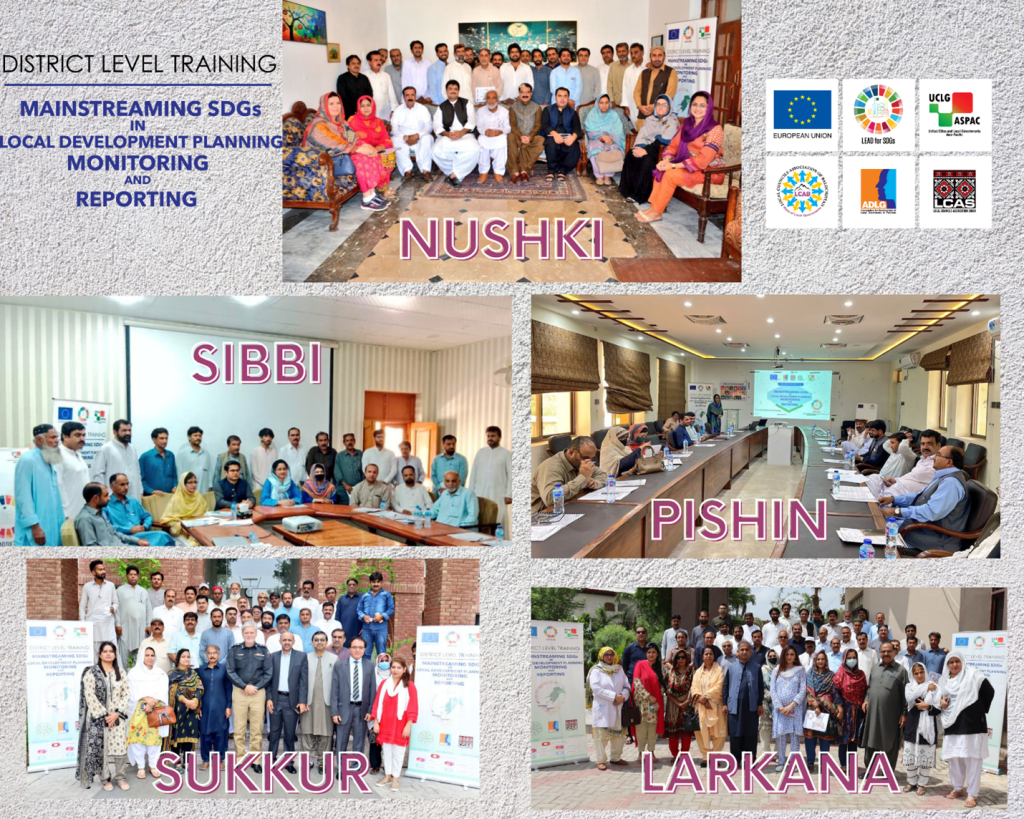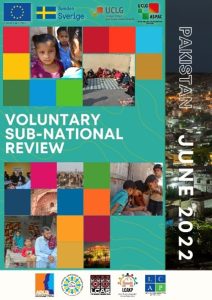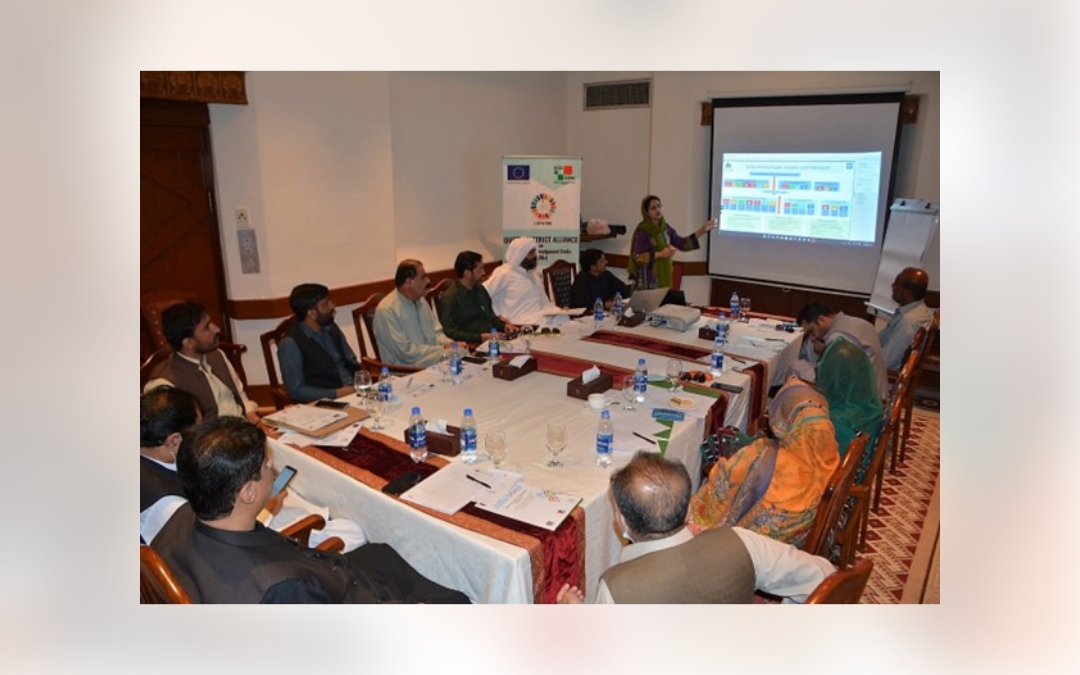Formulation of Quetta District Alliance
2 August 2022 | UCLG ASPAC programme for localisation of Sustainable Development Goals (SDGs) in Pakistan, LEAD for SDGs, funded by the European Union (EU), gathered stakeholders for the formulation of Quetta District Alliance Balochistan on SDGs.
Participating stakeholders from different areas included civil society organisations, the private sector, academia, research institutions, bar associations, media, local council associations, community leaders, and representatives from district administration. They formulated the action plan for future course of activities related to policy advocacy, awareness and capacity building regarding prioritised SDGs in Balochistan.
Building Capacity of Government Officers and Civil Society Personnel from Remote Districts of Sindh and Balochistan

27 June-6 August 2022 | Five “Two-day District Level Trainings” were arranged for Government Officers and Civil Society Personnel to mainstream SDGs from twenty (20) districts of Balochistan and Sindh.
The participants hailed from far-flung districts of Balochistan and Sindh such as Nushki, Ziarat, Chaghi, Washuk, Pishin, Killa Abdullah, Chaman, Harnai, Sukkur, Shikarpur, Khairpur, Ghotki, Larkana, Kambar, Shahdadkot, Jacobabad, Kashmore, Sibi, Kachhi and Kohlu joined the two-day training. Along with the attendance of people from Civil Society, the Government Officers came from different departments such as Local Government, Education, Health, Finance and Planning & Development.
Deputy Commissioners and other senior-level bureaucrats of the hosting district graced the event as chief guests. The chief guests addressed the participants to arrange such training sessions which can build the capacity of government officials and CSOs, so they can work together to amplify the localisation and achievement of Sustainable Development Goals (SDGs) till 2030 in Balochistan. The chief guest distributed the accolades to the participants.
Day one of the training was about introduction to SDGs, and the participants were capacitated with the understanding of International, National, and Provincial level SDGs frameworks. The discourse of training includes the background and context of SDGs along with detailed knowledge about the global agenda 2030 and National commitment towards the 2030 agenda.
On day two, the participants performed the exercises regarding SDG data collection, monitoring and reporting following the group activity for proposing actions to mainstream SDGs at the district level. The challenges of monitoring and reporting SDGs are continuous, it is necessary to focus on the active prioritisation and alignment of SDGs with our current projects.
Publishing the Voluntary Sub-National Review Report 2022

6 July 2022 | The LEAD for SDGs Localisation in Pakistan completed and published the Voluntary Sub-National Review (VSR) Report 2022 under the helm of the Ministry of Planning, Development & Special Initiatives, Govt. of Pakistan, with the collaboration of the Local Councils Associations in Pakistan and the Association for Development of Local Governance. It has been made possible through the financial support of the European Union and the Swedish International Development Cooperation Agency (SIDA).
The purpose of the Voluntary Sub-National Review (VSR) is two-fold: first, it is aimed at assessing the state of SDGs localisation in Pakistan and tagging the role and effectiveness of local governments thereof; second, identification and mapping of those local governments that have made strides to integrate the SDGs in their plans and policies and how they have been able to do so.
Apart from desk research, the study used focus group discussions with relevant stakeholders and structured interviews with government officials in a field survey of four provincial headquarters to gather desired information. VSR report will provide the stakeholders with insights for improving localization SDGs in the country.











